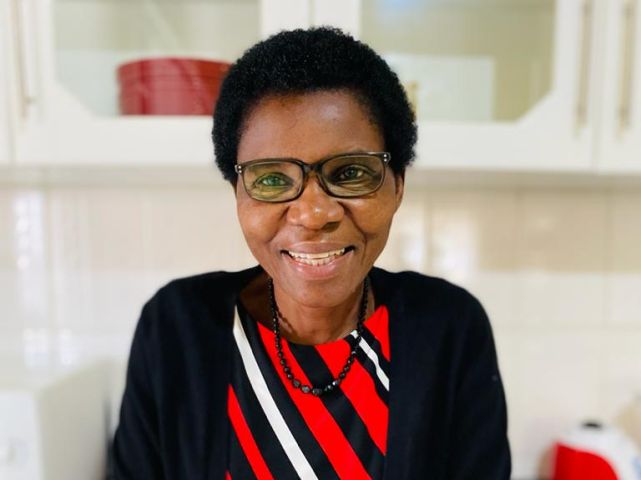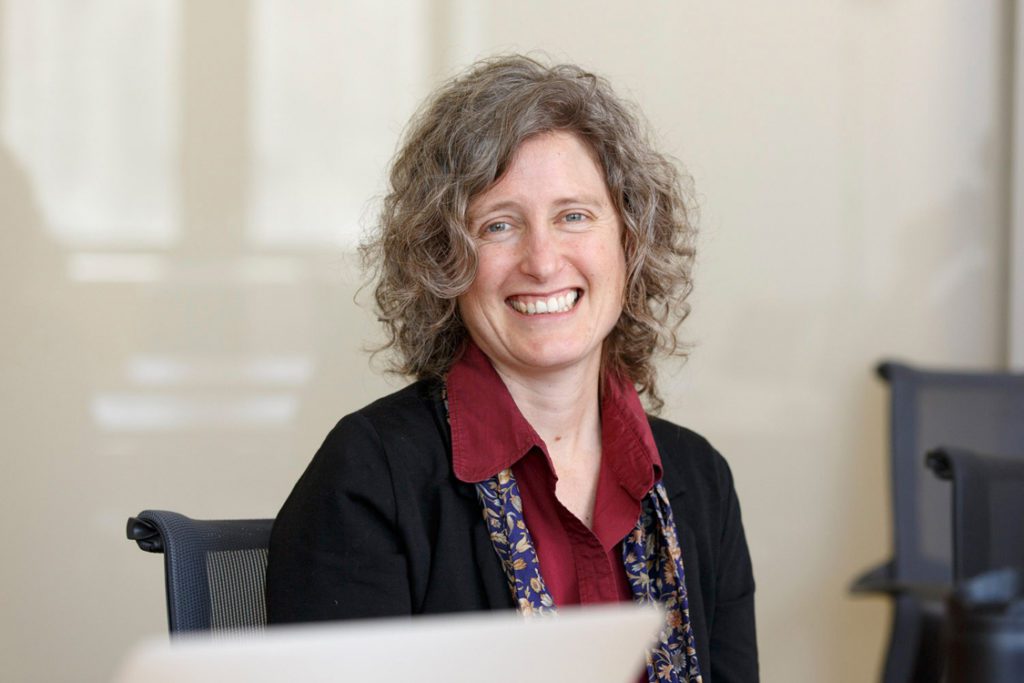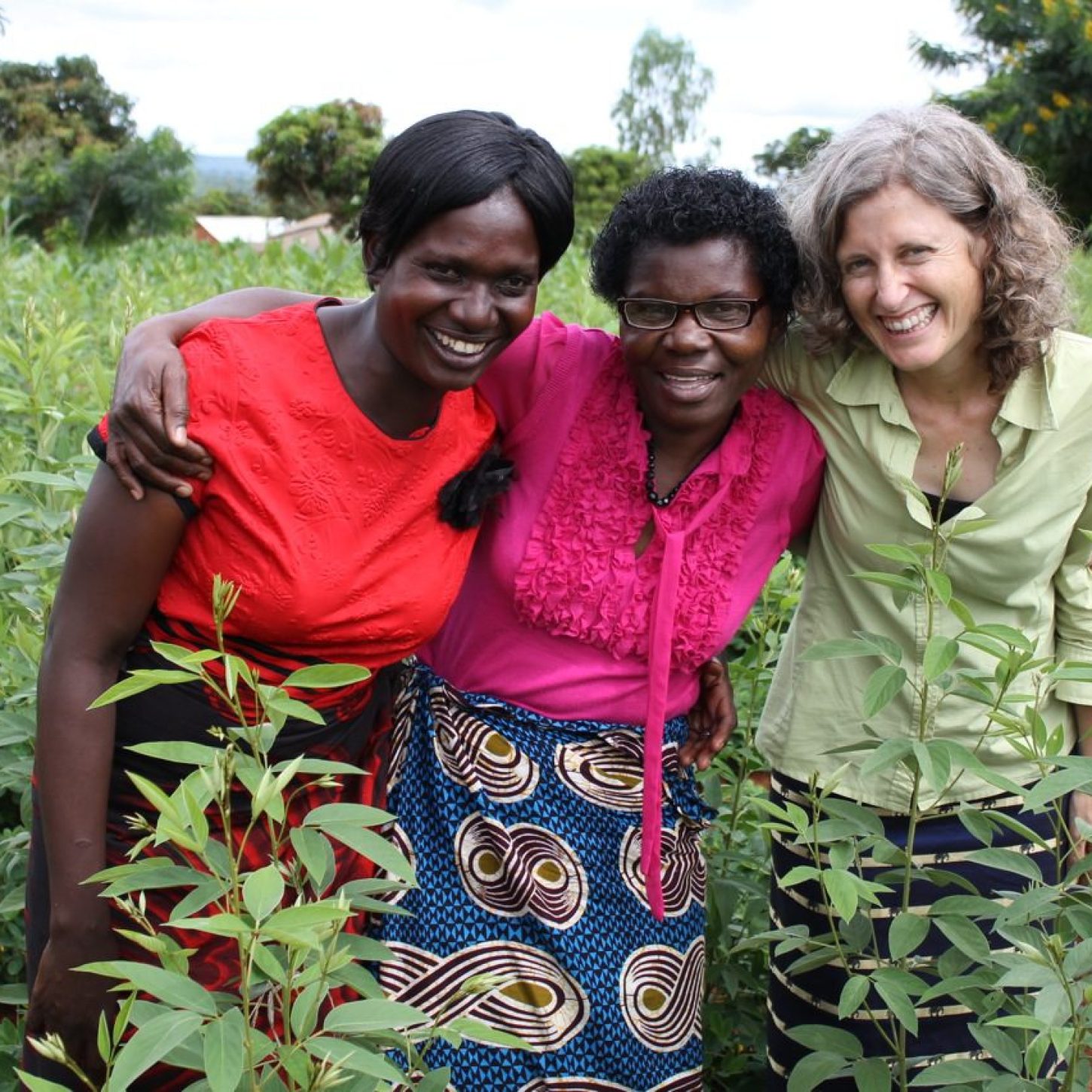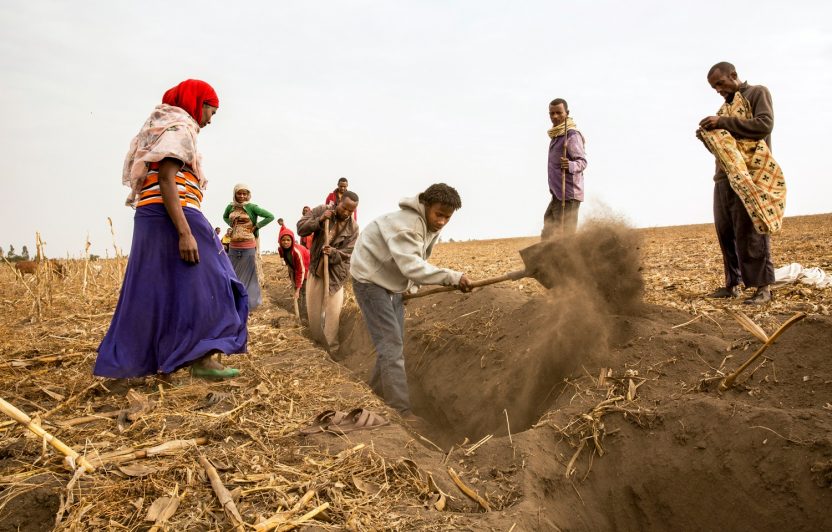The food situation in Malawi deteriorated dramatically in the 1980s. How did you experience this time?
Esther Lupafya (EL): In the 1980s, I worked as a nurse in Ekwendeni. At that time, many children came to the hospital suffering from acute malnutrition. When the children were better and we released them from the hospital, the parents were often worried. In discussions with them, we found out that the children were eating a very unbalanced diet – mainly maize. The parents told us that the fields did not yield enough because the soil was depleted, and they could not afford fertiliser. They had never heard of organic alternatives to synthetic fertiliser and were often dependent on a single crop. I realised that we needed a long-term solution.
What should this solution look like?
EL: We didn’t know in the beginning but around that time I met Rachel. She was studying soil science in Canada and visiting Malawi. From her we learned more about agroecological methods, for example how to make your own liquid fertiliser or how to intercrop with legumes. We looked for farmers who wanted to try out these methods. That was easy because some parents whose children were in hospital agreed to do so. They tested them on a small area of their farm, under their own conditions. We met with them regularly to exchange experiences. And we finally formed a team of researchers and advisors to whom the farmers could turn.
In addition to sustainable agriculture, gender issues came up. Why?
EL: Over time, we understood that improving the children’s nutritional situation was about much more than just replacing artificial fertiliser – it was also about understanding and changing social and cultural dynamics. In discussions with families, we found out that gender inequalities repeatedly led to household conflict. This was about things like decision-making or access to resources. The need for women’s empowerment became obvious.

About Esther Lupafya
Esther Lupafya is director and co-founder of the Malawian organisation SFHC (Soils, Food and Healthy Communities), a partner organisation of Biovision since 2019. She is particularly concerned about gender justice and improving the living conditions of people in Malawi. She has a master’s degree in social development and health.

About Rachel Bezner Kerr
Rachel Bezner Kerr is also a co-founder of SFHC. She is responsible for the participatory and socio-cultural focus of the project and helps design, implement and analyse the research projects at SFHC. Today, she works as a professor of development sociology at Cornell University.
Sensitive issues – how do you address them?
Rachel Bezner Kerr (RBK): We conducted interviews and workshops with the farmers, dividing them by age and gender to address some of the more sensitive issues. We found out that it didn’t really help the households that the men were selling the products – because they often spent the money on alcohol. So even though we were increasing production, we were actually worsening conditions for the families. This made us focus on gender issues. To this day, we offer gender training and use methods such as small group discussions, peer-to-peer mentoring, theatre, dance or songs that highlight gender issues.
Every day you get volunteers who want to join SFHC. You now work with over 10,000 farmers. What is your recipe for success?
RBK: The key is to involve the farmers. They themselves can try out the methods and share their knowledge with others: from planning to implementation, everyone is involved. And today we have the same number of men as women participating.
What are you particularly proud of?
RBK: One of the highlights was in 2010 when we were able to demonstrate significant improvements in childen’s growth. We also made positive changes in food security and gender equality. And I know from our research that the work we are doing is having a very positive impact on the environment.
How do the farmers benefit when they participate?
EL: They learn how to make natural fertiliser or what to pay attention to regarding intercropping. We also offer cooking courses where people learn how to prepare the different vegetables. Thanks to the courses in agroecology, the food situation of the families has improved significantly. The farming families have enough food for their children and can even sell surplus vegetables on the market. With the additional income, they can pay the school fees for their children.
Symposium Review
Esther Lupafya was guest at the Biovision Symposium 2022. Learn more about the successes and challenges of the SFHC organisation and how the farmers involved are dealing with the consequences of the climate crisis.




